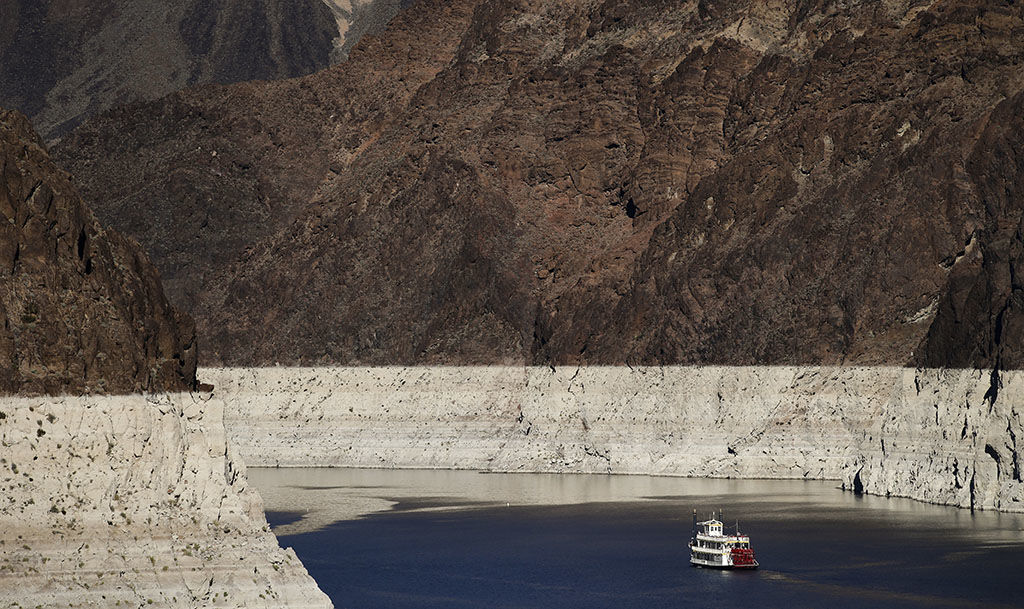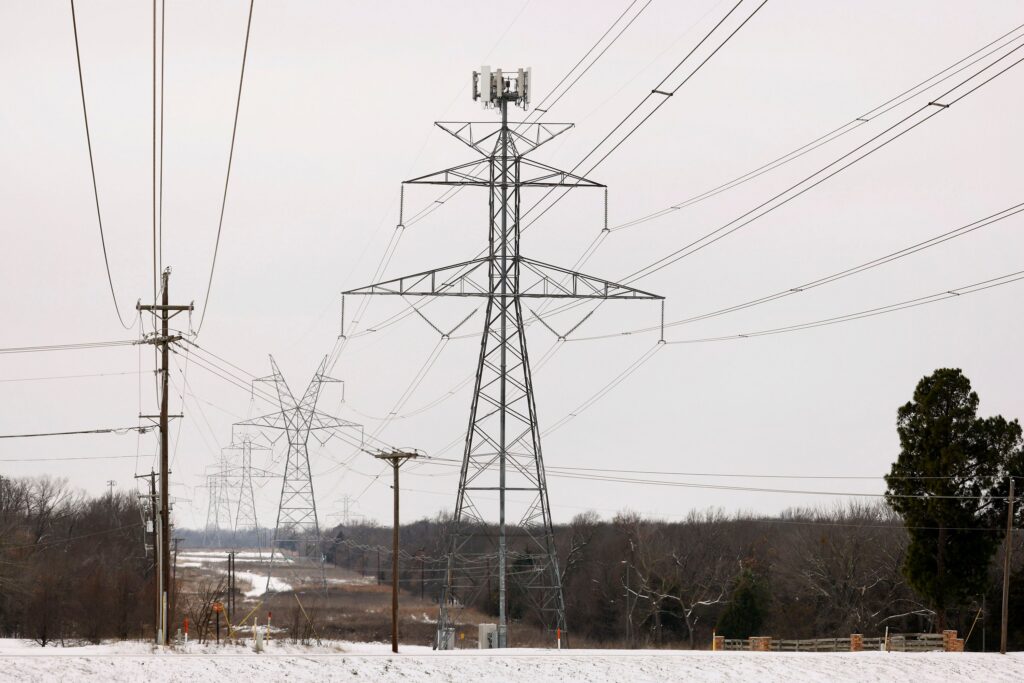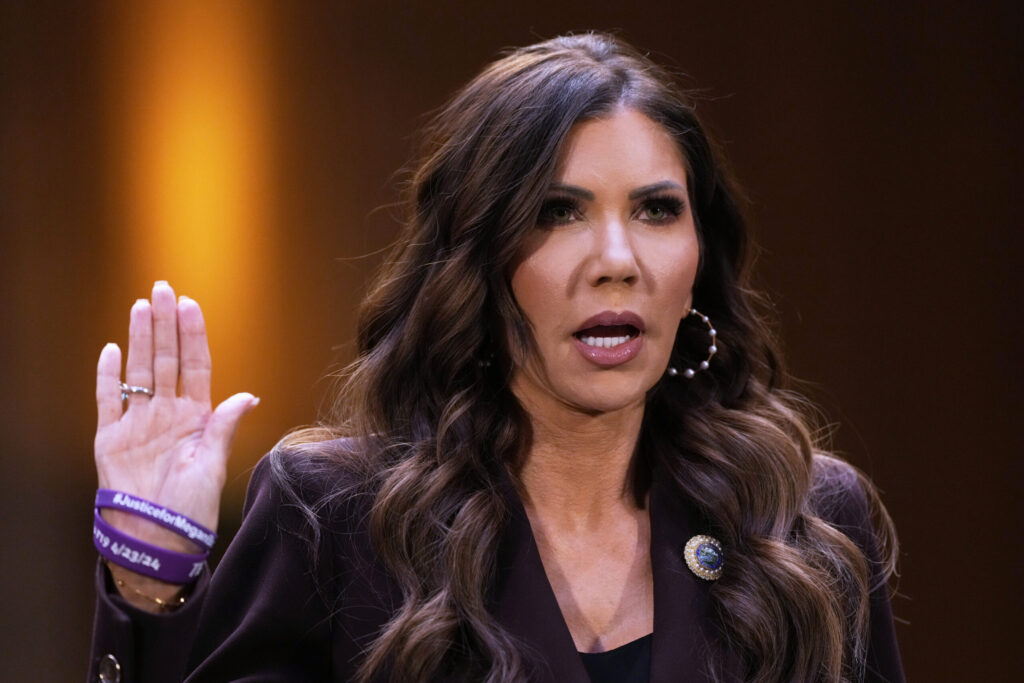Colorado River is plaintiff, sort of, in a lawsuit to give it same rights as people

The Colorado River ought to have its own legal status that would put it on the same footing as people or corporations, according to an environmental group that filed a lawsuit in Denver federal court Monday. The lawsuit is the first of its kind in the United States, its proponents say.
The Community Environmental Legal Defense Fund (CELDF) announced the pending lawsuit last week, naming the environmental group Deep Green Resistance (DGR) as “next friends” on behalf of the Colorado River ecosystem, which won’t be appearing.
Deep Green Resistance’s Colorado chapter has been active on a number of environmental issues; most recently protecting prairie dog communities in several Colorado locales.
Representing DGR is Jason Flores-Williams, a local civil rights attorney who filed a class-action lawsuit against the city of Denver over homeless sweeps. That case, which was granted class-action status in April, is still pending.
Mari Margil, director of CELDF’s International Center for Rights of Nature, said in the statement that the lawsuit, which will name the state of Colorado and Gov. John Hickenlooper as defendants, seeks a judgment that the river and its ecosystem “possess certain rights, including the right to exist, flourish, evolve, regenerate, and restoration.” In addition, the group wants a ruling that the state can be held liabile for “violating the rights of the river.”
Apparently, it’s not as far-fetched an idea as it might appear.
In the past year, rivers in three countries – India, Columbia and New Zealand – have won in court decisions that grant rivers, glaciers and ecosystems rights of their own.
There has been quite a bit of lawmaking in the United States and other countries to secure legal rights of nature and ecosystems, Margill told Colorado Politics recently. Multiple communities and municipal governments, including in Colorado, have passed laws on the rights of nature. That includes a law adopted by the city of Lafayette in March to “recognize a right to a healthy climate for people and nature, and to ban the extraction of oil and gas as a violation of that right.”
Margill said that environmental laws only regulate “how much we can harm and pollute nature,” without actually protecting nature.
If successful, Margil said, the court would find the river has specific rights to exist and “we would have to reconsider human activity” as it relates to the river and its health. “What we need to do to make sure human activity does not interfere with the Colorado River,” which supplies water to seven states and about 40 million people.
One of the big questions is how a ruling in favor of the river would impact Colorado water law, which grants water rights to the first person who claims it – or as the old Western water adage has it, “first in time, first in line.” Water is regarded as a property right in Colorado.
Margil said environmental law is based on a similar concept that nature is property and does not have its own legal rights. She added that the idea that nature has its own rights follows other changes in property rights, such as ending laws that denied women property rights or laws that treated slaves as property.
Nature does not exist only for human use, Margil said. “When we treat nature as a resource to serve humankind, it leads to decimating those ecosystems.”
Flores-Williams told Colorado Politics that a win would ensure that an injury to the river could be decided by the courts without having to show how the injury affects human beings.
The Colorado is being allocated into extinction, Flores-Williams said, and the courts have been powerless to stop it and other injury to the river, because of a legal concept called “standing,” or the ability of a plaintiff to show how he or she was harm by a defendant’s actions.
In the court filing, Deep Green Resistance noted that the concept that nature should have the right to sue for its own protection was recognized by U.S. Supreme Court Justice William O. Douglas, who wrote in a dissenting opinion in 1972 that “inanimate objects” should have standing to sue in court:
The filing noted that “inanimate objects who do not have the ability to testify themselves are commonly parties in litigation.” Most recently, the lawsuit said, that means corporations, such as in the Citizens United case decided by the U.S. Supreme Court in 2010 and which held that corporations had the same legal rights to political speech as individuals. They also cited Burwell v. Hobby Lobby, a 2014 decision that granted the craft chain the right not to follow contraceptive mandates under the Affordable Care Act. The company, based in Oklahoma City, objected to offering contraceptives in their health plans based on the religious views of its Christian owners.
The lawsuit raised eyebrows from the Colorado River Water Conservation District, the public agency that has managed the Colorado River since 1937 under state law. Chris Treese, external affairs manager for the district, said the Colorado Constitution dedicates the water to the people of the state.
“This proposed action immediately strikes me as odd for two reasons,” Treese told Colorado Politics via email. “This groups seems to believe that it’s the first entity ever to look out for the health and welfare of the Colorado River. The Colorado River District has been doing just that for 80 years.
“Additionally, it’s perhaps telling that this organization is preceding its promised legal filing with a press release. Are they more interested in a ‘first-in-the-nation lawsuit’ or media coverage and subsequent fundraising?”












